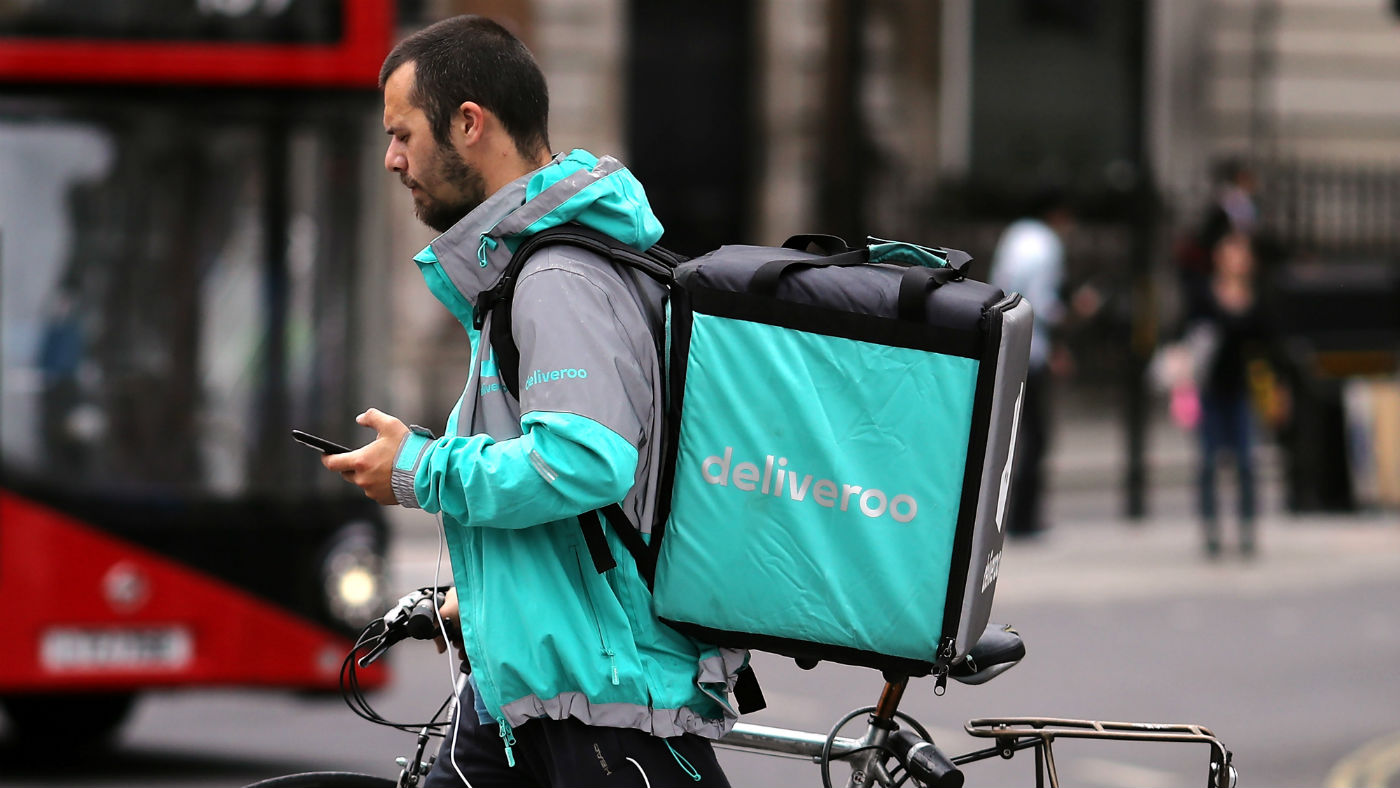Gig economy in Britain doubles to 4.7m workers
New report says worker rights are declining amid a surge in gig economy roles

A free daily email with the biggest news stories of the day – and the best features from TheWeek.com
You are now subscribed
Your newsletter sign-up was successful
Britain’s gig economy has more than doubled in size over the past three years and now accounts for 4.7m workers, according to a new report.
As many as one in 10 working-age adults now work on gig economy platforms, up from one in 20 as recently as 2016, says the study, from the TUC and experts at the University of Hertfordshire.
The report shows how “a boom in digital platforms, such as Uber and Deliveroo, has sparked a revolution in the world of work”, but that “workers’ rights have failed to keep pace with the dismantling of the traditional nine-to-five working week”, The Guardian says.
The Week
Escape your echo chamber. Get the facts behind the news, plus analysis from multiple perspectives.

Sign up for The Week's Free Newsletters
From our morning news briefing to a weekly Good News Newsletter, get the best of The Week delivered directly to your inbox.
From our morning news briefing to a weekly Good News Newsletter, get the best of The Week delivered directly to your inbox.
The report, which is based on a poll of 2,235 UK residents, aged between 16 and 75, says the number of working-age adults who have worked for an online platform at least once a week has risen from 4.7% (2.3m workers) three years ago, to 9.6%, (4.7m) today.
The BBC says that the report shows the “changing world of work,” which the Huffington Post calls “divisive”.
The findings demonstrate that “working people are battling to making ends meet”, said TUC chief Frances O'Grady.
She added: “Huge numbers are being forced to take on casual and insecure platform work - often on top of other jobs.
A free daily email with the biggest news stories of the day – and the best features from TheWeek.com
“But as we've seen with Uber, too often these workers are denied their rights and are treated like disposable labour.”
The Office for National Statistics had previously calculated the size of the gig economy workforce in 2017 to be just 4.4% of the population. However, the new study took a wider definition of platform work, taking in paid tasks found via a website or an app.
Young people were found to be most likely to be using apps to find work that way, with nearly two-thirds of those working once a week aged between 16 and 34.
Men are more likely than women to undertake such work, while most people use more than one platform to earn a living.
In response to the report, Rachel Reeves, the Labour chair of the Commons business committee, said: “The government has been far to slow in tackling the fallout from the gig economy, which too often leaves workers exploited and victim to low pay and insecure work.”
David Blanchflower, a former member of the Bank of England’s rate-setting monetary policy committee, and the author of a book on the rise of unstable employment, said: “The gig economy isn’t necessarily bad” but added that people have been “scared senseless” over employment since the 2008 crash.
-
 Should the EU and UK join Trump’s board of peace?
Should the EU and UK join Trump’s board of peace?Today's Big Question After rushing to praise the initiative European leaders are now alarmed
-
 Antonia Romeo and Whitehall’s women problem
Antonia Romeo and Whitehall’s women problemThe Explainer Before her appointment as cabinet secretary, commentators said hostile briefings and vetting concerns were evidence of ‘sexist, misogynistic culture’ in No. 10
-
 Local elections 2026: where are they and who is expected to win?
Local elections 2026: where are they and who is expected to win?The Explainer Labour is braced for heavy losses and U-turn on postponing some council elections hasn’t helped the party’s prospects
-
 Blinkit: India’s 10-minute delivery app
Blinkit: India’s 10-minute delivery appUnder The Radar Market pressures and rider unrest are casting a shadow over leading player
-
 Labour shortages: the ‘most urgent problem’ facing the UK economy right now
Labour shortages: the ‘most urgent problem’ facing the UK economy right nowSpeed Read Britain is currently in the grip of an ‘employment crisis’
-
 Will the energy war hurt Europe more than Russia?
Will the energy war hurt Europe more than Russia?Speed Read European Commission proposes a total ban on Russian oil
-
 Will Elon Musk manage to take over Twitter?
Will Elon Musk manage to take over Twitter?Speed Read The world’s richest man has launched a hostile takeover bid worth $43bn
-
 Shoppers urged not to buy into dodgy Black Friday deals
Shoppers urged not to buy into dodgy Black Friday dealsSpeed Read Consumer watchdog says better prices can be had on most of the so-called bargain offers
-
 Ryanair: readying for departure from London
Ryanair: readying for departure from LondonSpeed Read Plans to delist Ryanair from the London Stock Exchange could spell ‘another blow’ to the ‘dwindling’ London market
-
 Out of fashion: Asos ‘curse’ has struck again
Out of fashion: Asos ‘curse’ has struck againSpeed Read Share price tumbles following the departure of CEO Nick Beighton
-
 Universal Music’s blockbuster listing: don’t stop me now…
Universal Music’s blockbuster listing: don’t stop me now…Speed Read Investors are betting heavily that the ‘boom in music streaming’, which has transformed Universal’s fortunes, ‘still has a long way to go’